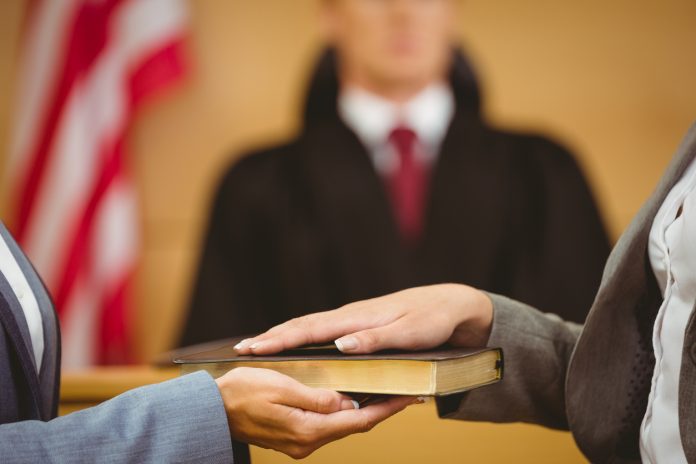This article is written by Ajay Singh Rathore, pursuing Certificate Course in Advanced Criminal Litigation & Trial Advocacy from Lawsikho. The article has been edited by Zigishu Singh (Associate, LawSikho).
Table of Contents
Introduction
The word evidence is borrowed from a Latin word ‘evidere’ which in its literal sense refers to discover clearly, to ascertain, or to prove. The Indian Evidence Act was passed in India by the Imperial Legislative Council in 1872 during British Rule. The Act was to provide for rules related to the admissibility of evidence in Indian courts. A Commission was established under the chairmanship of Sir Henry Mayne in 1868. He submitted the draft, however, this draft was found as nonsuitable to Indian situations. Later in 1871, the Stephen Commission was formed under James Stephen to draft and codify the law of evidence. Stephen presented the draft of the bill to the council on 31st March 1871 which was sent to the select committee and also to Local Governments, High courts, and Advocates to elicit their opinion. After receiving their opinions, the select committee made the appropriate amendments and then presented the same to the council which promulgated it as the “Indian Evidence Act, 1872 (Act No. 1 of 1872). Thus, Sir James Stephen is rightly considered the founding father of this comprehensive piece of legislation.
According to Stephen, legal usage of the term “evidence” is ambiguous. It can sometimes mean statements made and items presented for consideration by witnesses before the court of law. At other times, it means the facts proved to exist by those words or things and regarded as grand work of inference as to other facts not so proved. Again, it is sometimes used as a means to assert that a specific fact is relevant or necessary to the matter of inquiry. One can see that this meaning of evidence is aptly reflected in the definition clause of the Indian Evidence Act. The law of evidence is, therefore, based on three core principles:
1. Evidence must be confined or be limited to the matters in question,
2. Hearsay evidence must not be admitted,
3. Best evidence must be given.
When appreciating different forms of evidence, the role of a witness cannot be disregarded. A Witness through time and age has been an important player in helping the court in rendering justice. The principles of justice emphasize the fact that truth and unbiasedness must form the very basis of justice. This introduces the role of a third party as a witness to the scene of the incident and confirms the correctness of evidence. In basic terms, a witness can be defined as a person who has witnessed or witnessed any act or series of acts or a scene or an incident taking place.
A witness may be any person who has the ability to perceive a fact through his senses. A competent witness may perceive any act from his eyes or ears or smell or sensation or touch or any other reasonable mode. When there is nothing in the law that prevents a witness from appearing in court and giving evidence, in such a situation a witness is deemed to be competent. The capacity of a witness to understand the questions put to him and his capacity to give rational answers to such questions determines whether a witness can be considered competent or not. In the Indian Evidence Act, Section 118 to 121 and Section 133 deal with the competency of different types of witnesses.
Whether a witness is independent or not depends on the facts and circumstances of the case. Basically, the term independent witness refers to a witness who is not interested in the result of a case be it success or failure, and is not closely related or associated with any party to the case. Thus, a witness is considered to be independent unless he or she springs from sources that are likely to be tainted and some kind of animosity with the accused and due to which they wish to implicate the accused falsely or wants him behind bars for the crime he has not committed. These witnesses who have some kind of animosity with the accused are referred to as inimical witnesses.
Credibility of inimical witness
The Supreme Court has repeatedly held in a plethora of cases that the testimony of witnesses cannot be rejected solely on the ground that the witness is inimical to the accused. Such a finding is erroneous and results in a grave miscarriage of justice. However, since the reliability of inimical witnesses is tainted by bias and interest, their testimony must be carefully evaluated in light of other evidence. Their testimony must be corroborated with other evidence and should be judged with great caution and diligence and after Court conclusively determines that it is creditworthy then only it has to be admitted. If such reassuring factors are absent, the evidence fails to fulfill one of the basic principles of evidence law that best evidence should be given.
Following the same reasoning in another case, it was held in the case of Piara Singh v. State of Punjab that it is a well-settled principle that the evidence of inimical or interested witnesses is to be scrutinized with due care, however the same cannot be rejected merely on the ground of being partisan evidence. If on a perusal of the evidence and its corroboration with others, the Court determines that the evidence is cogent and creditworthy then there is no bar in relying on the said evidence.
Further in Hari Obula Reddy v. the State of A.P. the court reiterated the same principle and held that it is settled law that interested evidence is not necessarily unreliable evidence. Partisanship by itself is not a valid ground for discrediting or rejecting sworn testimony. Nor can it be laid down as an invariable rule that the testimony of an interested witness can never shape the premise of conviction of an accused unless it is sufficiently corroborated by other independent evidence. All that is required is that the evidence of interested or inimical witnesses must be scrutinized with due care and accepted with caution. If on such scrutiny, the evidence of an interested witness is found to be cogent, credible, or trustworthy, it may, by itself be enough in the particular circumstances of a case, form the basis of conviction.
Thus it can be very well summed up that the evidence of a related/ interested or inimical witness should be subjected to careful scrutiny and carefully examined. In a case where it appears that the related and interested witness may have some animosity with the accused, the bar of scrutiny would need to be raised and the evidence of such witness would have to be examined by applying a standard of due care and scrutiny. However, this standard of due care and scrutiny in accepting the evidence of inimical/interested witnesses is only a rule of prudence and not one of law.
However, there are certain instances when the testimony of inimical witnesses is held unreliable. One particular instance is when it fails to stand the test of stricter scrutiny or when it is not corroborated with any other evidence or is inconsistent with other evidence. In the case of Ganesh Datt v. the State of Uttrakhand, the evidence of inimical witnesses was considered unreliable because of two main points, firstly, the testimony was very inconsistent with the medical evidence which came before the court. The eye-witnesses had given testimony that the accused fired shots with a pistol however it became clear in the medical evidence that there was no gunshot injury found on the body of the deceased. Secondly, the accused had suffered injuries during the incident but the witness denied the very fact the accused had sustained any injuries. Thus, it became clear that they were lying on the most material point, making their evidence unreliable and untrustworthy.
In fact, when a witness is a person related to the deceased with deep-rooted enmity against the accused, it is extremely important to have some other eye witness or ocular evidence and when the testimony of a witness contradicts medical reports, a case for benefit of the doubt has to be made out.
Recommendations
It is important that the inimical witness’s testimony should be subjected to careful scrutiny. It must be borne in mind that corroboration by other material evidence or independent witnesses should be made an indispensable rule in cases where the prosecution is solely based on the evidence of a witness who appears to be inimical. However, it is not suggested that evidence of inimical witness should be completely discredited or discarded because of the existing animosity, All that is necessary is careful scrutiny of such evidence and if on such scrutiny, the interested testimony is found to be cogent, credible or trustworthy, it may, by itself be enough in the particular circumstances of a case, form the basis of conviction.
Conclusion
It can be appropriately put that the justice system followed in India profoundly depends on the witness and his conduct. The witness has the power to alter the course of the entire case. Thus there is no denying in saying that a witness has an important role in bringing the offender to justice. Their testimony can be relied upon and by itself be enough in the particular circumstances of a case to form the basis of conviction if they appear to be unbiased and their testimony is cogent, credible, or trustworthy and clearly convey that the accused is the perpetrator of the crime and no one else.
However, this becomes slightly difficult in the case of inimical/interested witnesses as their evidence is driven by some ulterior motive and they are in some way or other are interested in the result of the case. It is very important that in such scenarios their testimony must be scrutinized with due care and accepted with caution. If on such scrutiny, it appears that the evidence of such a witness is clear, creditworthy, and unambiguous then it can be accepted and can form the basis of conviction.
References
- Stephen, Introduction to the Law of Evidence
- Evidence in Civil and Criminal Cases: The Best Evidence (Original Documents) Rule; available at https://lawshelf.com/shortvideoscontentview/best-evidence-original-documents-rule/
Students of Lawsikho courses regularly produce writing assignments and work on practical exercises as a part of their coursework and develop themselves in real-life practical skills.
LawSikho has created a telegram group for exchanging legal knowledge, referrals, and various opportunities. You can click on this link and join:
https://t.me/joinchat/L9vr7LmS9pJjYTQ9
Follow us on Instagram and subscribe to our YouTube channel for more amazing legal content.
 Serato DJ Crack 2025Serato DJ PRO Crack
Serato DJ Crack 2025Serato DJ PRO Crack











 Allow notifications
Allow notifications


